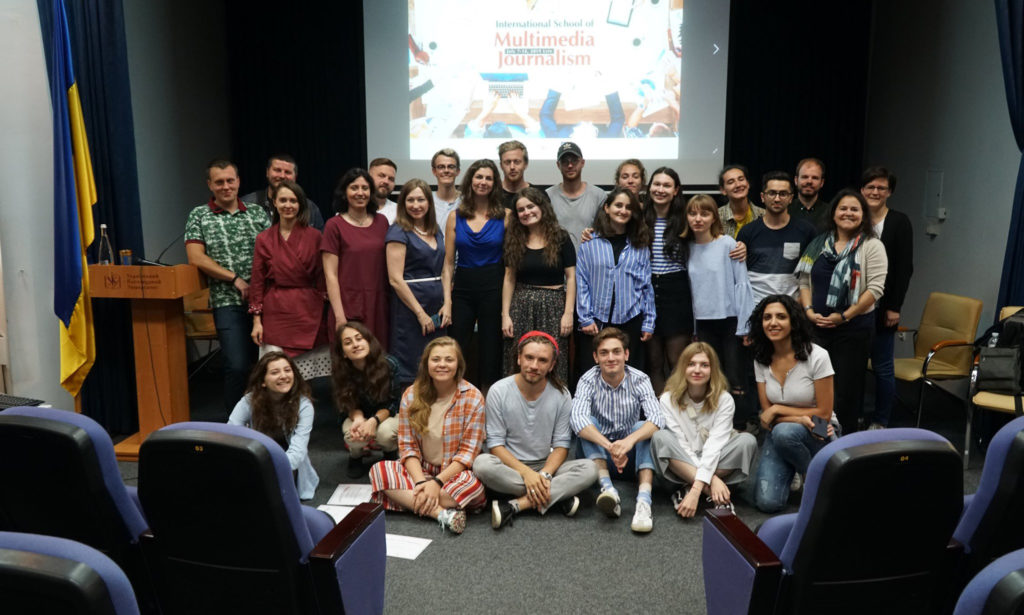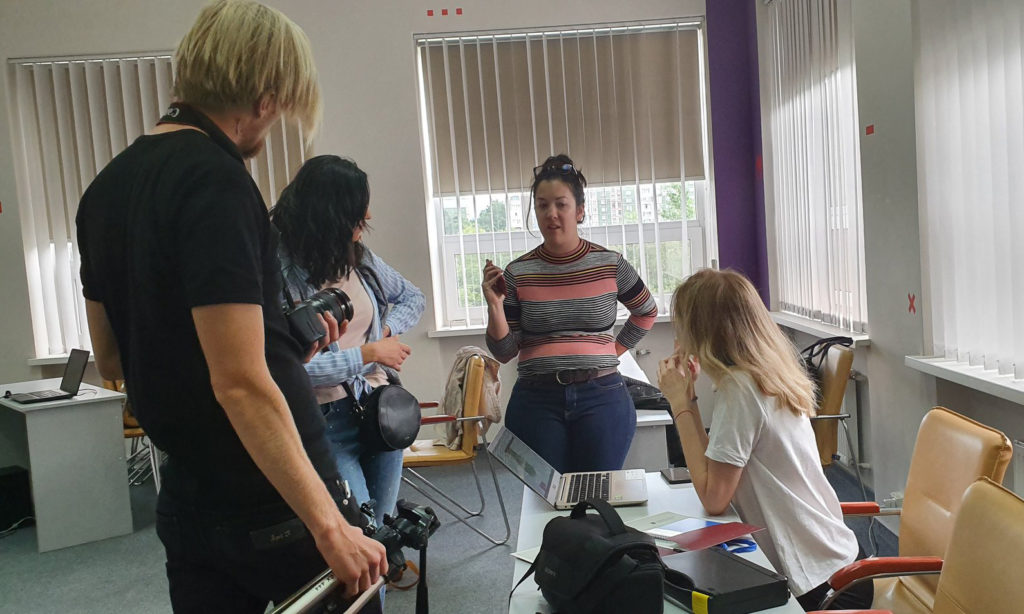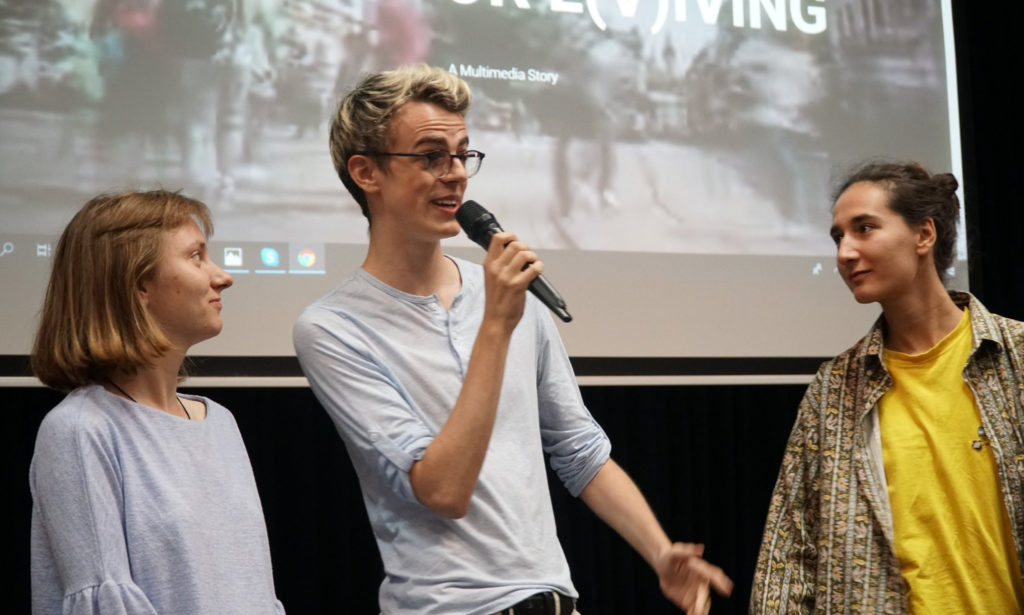Journalism students from FHWien der WKW have been meeting with students from various European countries in Vienna and the western Ukrainian city of Lviv (Lemberg) in order to exchange ideas and learn from each other for five years. What began as an experiment has developed into a model for the future of multimedia journalism: a best-practice example for the exchange of young journalists for good ideas and knowledge – and the beginning of a multitude of friendships.
From July 6 to 13, 2019, journalism students from FHWien der WKW travelled to Lviv, Ukraine for the second project week of the International School of Multimedia Journalism. Together with students from Denmark, Georgia and the Ukraine they worked on multimedia reports regarding this year’s topic “Social Responsibility”. The resulting reports deal with domestic violence (“Beating means Loving”), emigration (“Leaving or L(V)iving”), waste separation and avoidance (“don’t toss it, donate it”) as well as the influence of individual media houses in Ukraine (“ZIK is over”).
Already in February 2019, the first project week took place in Vienna. The students dealt with questions on waste avoidance (“A Way Out of Waste”), volunteering (“F(o)ur others”) and youth work (“Martial Youth”) as well as the challenges for an integrative working environment ((“Let’s work”). In doing so, they took a very individual look at the subject area and put projects, initiatives and people in the foreground, thus highlighting different aspects of the general theme.
During the project work, the students honed their skills. In addition to classic journalistic virtues such as research, conducting interviews and preparing texts, the program also includes the development of technical skills: from photography and filming to image editing, layout and design. The main focus of the Austrian-Ukrainian journalism project, however, is on intercultural exchange. The participants gain an insight into the working methods and functions of different media systems and benefit from each other’s experiences.
“The differences in the journalistic approaches of the two countries often represent the greatest challenge for the participants,” says Daniela Süssenbacher, Head of Study Program for Journalism & Media Management. “But this is precisely where the greatest attraction lies: it is necessary to confront one’s own way of thinking and journalistic understanding with something new and unknown, in order to reconcile cultural differences in order to work together on a project”.
In 2020, the International School of Multimedia Journalism will be dedicated to the role of women in our society under the motto “Superwomen – The Role of Women in Society”.
A detailed follow-up report can be found on our blog at https://journalismus-studieren.at/ (in German).
Further details and an overview of the past projects can be found at http://multimediajournalism.eu/.
About the ISMJ:
The International School of Multimedia Journalism (ISMJ) is run by the Study Program for Journalism & Media Management at the University of Applied Sciences for Management & Communication together with the Ukrainian Catholic University Lemberg (UCU School of Journalism). It is a joint program that networks Austrian and Ukrainian journalism students and promotes an understanding of international media systems and the media landscape in both countries. In the second year of its existence, the International School of Multimedia Journalism received two further project partners: The Danish School of Media and Journalism (DMJX) and the Georgian Institute of Public Affairs (GIPA).
In one week each in Vienna and Lemberg, the participants develop journalistic multimedia projects with different thematic focuses in tandem learning and with the support of experienced editors. In addition, the participants are offered talks, input lectures and discussion rounds with experts.
The project is financially supported by the Federal Ministry of Education, Science and Research (BMBWF), the OeAD Cooperation Centre Lemberg, the OeAD GmbH Vienna, the City of Vienna and the Cultural Section of the Federal Ministry for Europe, Integration and Foreign Affairs (BMEIA).


